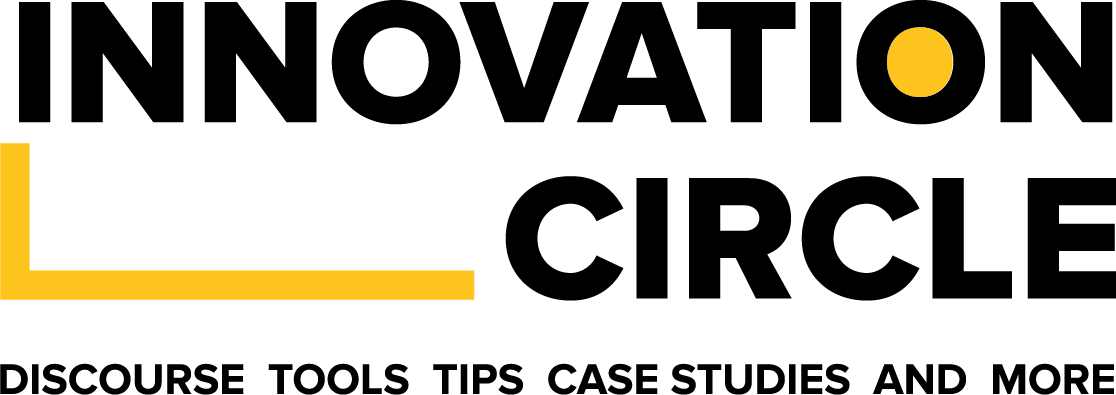A Conversation with Lola Cardoso, Chief Digital and Innovation Officer at Union Bank PLC
“I believe innovation is about creating, capturing and delivering value to stakeholders – these could be around solutions to your customers’ articulated or unarticulated needs. Innovation needs to be authentic to succeed.”
Tell us a little about your journey to this current position Chief Digital and Innovation Officer at Union Bank. What led you into this path of innovation?
I joined Union Bank in August 2013 as Group Head, Corporate Strategy to drive the Bank’s strategy, anchor its overall transformation and support execution bank-wide.
My aim was to make a difference and transform an almost 100-year-old bank then into a modern organization with the right people, processes and platform. I have contributed to the successful transformation of the bank and proud as the bank continues its positive growth momentum.
In 2015/2016, I began driving the bank’s innovation and sustainability efforts, which are integral to our Bank’s future growth and positioning. Our transformation efforts focused on people, process and technology, have built a solid foundation for us to compete effectively and win.
Today, I am driving digital and innovation in a 100+ organization and I now lead our retail distribution efforts with the aim of continuously delivering superior value to stakeholders as we position Union Bank as a leader in retail and transaction banking. We are in a new phase of our transformation as we deepen our focus on digital and innovation, which are essential to win in the future.
What are your thoughts on innovation as it is currently in Nigeria?
The speed at which innovative technology is travelling across the world especially Africa is incredible; it is reshaping how we consume financial products and media content. The continent’s strive for innovation and development, especially in Financial Technology – lending and payment systems is impressive – thanks to the increasing rate of mobile penetration across Africa.
“The continent’s strive for innovation and development, especially in Financial Technology – lending and payment systems is impressive – thanks to the increasing rate of mobile penetration across Africa.”
Nigeria is home to so many creative and innovative individuals and businesses – I am very proud to see how Nigeria is consistently being put on the map by so many innovations that have been birthed in the country. In fact, Nigeria’s tech industry has become the leading investment destination in Africa for investors globally; with the country’s startups raising ~$180m in disclosed funding rounds in 2018 according to Techpoint Africa. In the first half of 2019 alone, tech start-ups in Nigeria have raised ~$110m in investments from local and foreign investors. The potential is indeed huge!
Given Nigeria’s current dependence on revenue from oil, it is very clear that there’s a need to boost innovation and adopt new frontier technologies to support growth across all sectors. Innovation is important for Nigeria’s social and economic growth. It is one thing to say you need innovation and another to create an ecosystem that will push beyond boundaries and challenge the status quo. Innovative technologies like AI, open banking, blockchain, robotics etc. need to be adopted to deliver the economic breakthrough Nigeria needs. With the Government’s recent creation of a refreshed ministry – Communications and Digital Economy, we hope that there will be deliberate and concerted efforts to create enabling structures and policies for innovation and digital initiatives to thrive in the country.
Leading the charge on Union Bank’s digital strategy and investments, I am increasingly driven to pay it forward for Nigerians and the larger society including women and youth to grow the digital economy. The challenges in Nigeria around financial access as well as financial literacy are clear opportunities that we are trying to tackle at Union Bank. I believe that by partnering with a larger ecosystem, we can push boundaries and succeed.
What are your key responsibilities as the current position of Chief Digital and Innovation Officer at Union Bank?
As the Chief Digital and Innovation Officer at Union Bank, my focus is to drive and execute the digital roadmap for the Bank while retaining oversight of the Bank’s strategy and innovation objectives.
A key objective is to clearly define and execute a holistic digital strategy that enables and aligns with our ambitions. Critical tasks involve mapping out relevant digital requirements, as defined by our target segments and our priorities, identifying the right partners to onboard, and implementing an agile development and prototyping process for accelerated execution and insight gathering.
Ensuring the Bank is proactively abreast of developments in the digital and innovation space and making recommendations to the Bank on ideas and/or initiatives to invest in, is another important responsibility that I have.
I’m focused on integrating digital into all aspects of our business, from solutions, channels, processes and data to the operating model, incentives, and culture we embed in the organization.
How would you define innovation based on your experience at Union Bank?
I believe innovation is about creating, capturing and delivering value to stakeholders – these could be around solutions to your customers’ articulated or unarticulated needs. Innovation needs to be authentic to succeed. It needs to be part of your organization’s ethos to be successful. At Union Bank, innovation was adopted as a core value in 2017 reinforcing that creativity and forward-thinking is critical for our individual and collective success. Our commitment to innovation comes from the top. Employees are empowered to think creatively and strategically and we are committed to considering all ideas shared and investing in those relevant to our growth and strategic priorities.
Innovation can thrive only when we embrace and nurture an environment of ideas, creativity, and openness. This is the culture companies like Google, Facebook, and Amazon have embedded – encouraging their employees to test, fail fast / forward, and learn.
“I believe innovation is about creating, capturing and delivering value to stakeholders – these could be around solutions to your customers’ articulated or unarticulated needs. Innovation needs to be authentic to succeed. It needs to be part of your organization’s ethos to be successful”
In Union Bank, there are several internal initiatives in place to promote innovative thinking and actions – Annual Case Challenge, Ideas Bank and Union X. These are platforms that provide an opportunity for employees to flex their creativity and be recognized by leadership and colleagues. A number of the recommended solutions are currently in the incubation stage, with some already set to launch. Beyond these focused initiatives, we want to ensure that the innovative culture cuts across all functions across the bank and influences the way we hire, train, recognize and empower our employees. To this end, we have embedded some courses in the Organization Enhancement Academy curriculum that focus on creative thinking and strategic execution competencies to supplement the experiential and on-the-job exposure. This year, we included a design thinking course – Product, Service and Experience Design – to support our mission to continuously create the simplest, smartest solutions and guarantee the best experience every time!
While we continue to build our innovative culture, we recognize the power of collaborating with external parties. We remain open to partnering with start-ups and tech companies and this is evident from the number of live discussions and proof-of-concept testing with several local and global fintechs as we drive to become Nigeria’s most reliable and trusted banking partner.
“While we continue to build our innovative culture, we recognize the power of collaborating with external parties.”
Which companies (around the world) do you admire most for their approach to innovation? Can you share what caught your attention about their practices?
In general, I admire companies that leverage AI, data-driven technologies, platforms and ecosystems to consistently augment their ways of working and create new offerings that push boundaries and reinvent the future. We know the likes of Google and Amazon blaze the trail here with their numerous offerings in the marketplace. However, I would like to emphasize “what” I admire. I admire companies that have made millions of consumers rely on their offerings to access every single product / service they need within one platform in the palm of their hands, thereby becoming an integral aspect of people’s lives – business, personal needs, lifestyle, etc. As a result of this approach to innovation, it becomes very possible to expand to new business lines quickly by leveraging digital technologies and their existing customer base who have become loyal due to the convenience of their offerings.
“… companies that have made millions of consumers rely on their offerings to access every single product / service they need within one platform in the palm of their hands, thereby becoming an integral aspect of people’s lives – business, personal needs, lifestyle, etc. As a result of this approach to innovation, it becomes very possible to expand to new business lines quickly by leveraging digital technologies and their existing customer base who have become loyal due to the convenience of their offerings.”
I particularly like to draw inspiration from businesses such as this – their ability to meet consumers ever-changing demands for speed, flexibility, personalization and the role these play in creating great experiences and loyalty are critical as I think about my role in driving Union Bank’s vision to be Nigeria’s most reliable and trusted banking partner.
What advice would you give to professionals looking to improve their career in innovation management, strategy or innovation leadership?
My biggest piece of advice to innovators is to make creativity a habit. It is very easy to teach someone how to do a job, but very hard to teach someone how to think differently. Take a different view of life and challenge assumptions. Question everything.
“My biggest piece of advice to innovators is to make creativity a habit… Question everything.”
What #innovationmoment are you most proud of in your role as Chief Digital and Innovation Officer at Union Bank?
I don’t have one proud moment… we have accomplished a lot at Union Bank. I have many proud moments and am excited about the future.
I am very proud of the commitment and the passion with which my organization is driving innovation and is relentlessly pursuing our Digital Union agenda. The creation of the digital and innovation team working across the bank to create value and drive return for the bank and Nigeria has been rewarding. Providing them the tools and soon the workspace to create/co- create with our ecosystem makes me more excited about the future.
In addition, the implementation of innovation hackathon/challenges for UBN and for Nigeria (Centenary Innovation Challenge, Campus Innovation Challenge, edTech Challenge to name a few) has ignited our employees as well as Nigerian youth and entrepreneurs. These have been proud moments given the opportunities to nurture and enable home grown ideas and provide unique learning opportunities to all involved given partnerships with other innovation partners.
Also, our thorough innovation development process has been awesome to drive and the reward of birthing sustainable digital solutions with real impact on Nigeria consumers. We look forward to building our pipeline of solutions in partnership with the Nigerian technology and business ecosystem.
If you could build a company from the ground up, what innovation tactics or design methodologies would you use to build?
Companies coming up with new products would like to get the desired product to customers’ hands faster before their competitors even have time to think about modifying it.
The Lean Startup method teaches you how to drive a startup, how to steer, when to turn, and when to persevere and grow a business with maximum acceleration. This is a principled approach to new product development.
Today, too many startups begin with an idea for a product that they think people want or need. They then spend months perfecting that product without ever showing to customers. Taking a leaf from design thinking, it is very important to validate the idea/product with the market, observe your customers to determine their unarticulated needs, and further refine the product/idea with feedback from testing and prototyping.
These methods help to ensure that there is a need and an existing market for the product/idea to be launched, therefore greatly improving the chances of success in the marketplace as well as improving the sustainability of the business.
“Today, too many startups begin with an idea for a product that they think people want or need. They then spend months perfecting that product without ever showing to customers. Taking a leaf from design thinking, it is very important to validate the idea/product with the market, observe your customers to determine their unarticulated needs, and further refine the product/idea with feedback from testing and prototyping.”
#innovationmoment
“The creation of the digital and innovation team working across the bank to create value and drive return for the bank and Nigeria has been rewarding. Providing them with the tools and soon the workspace to create/co-create with our ecosystem makes me more excited about the future.”




